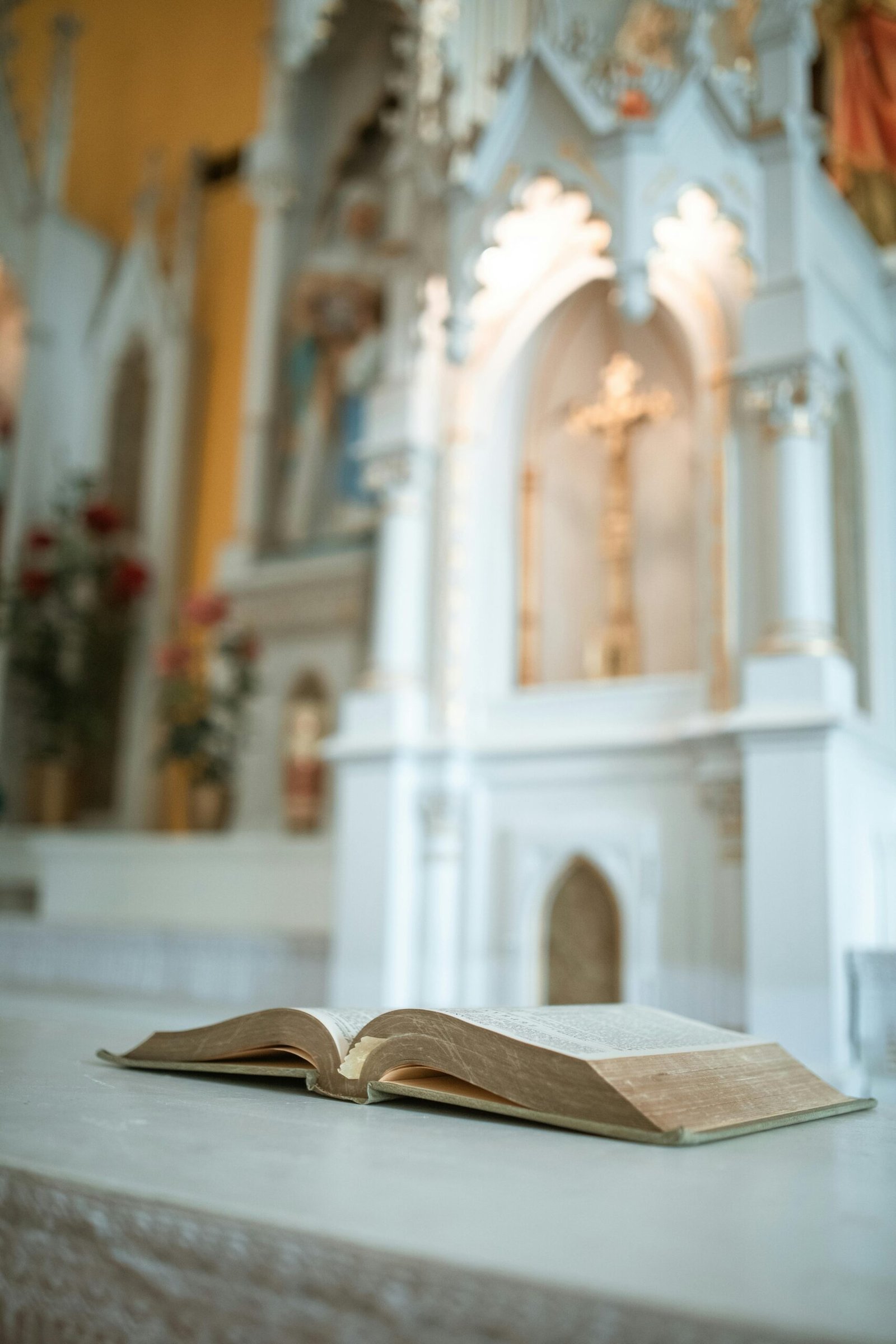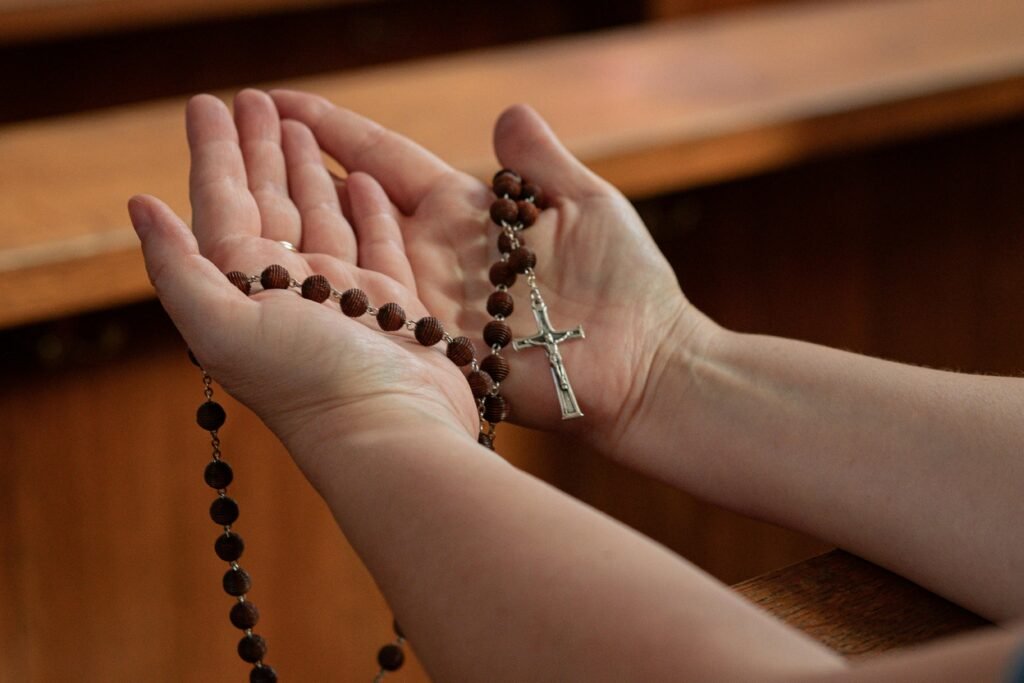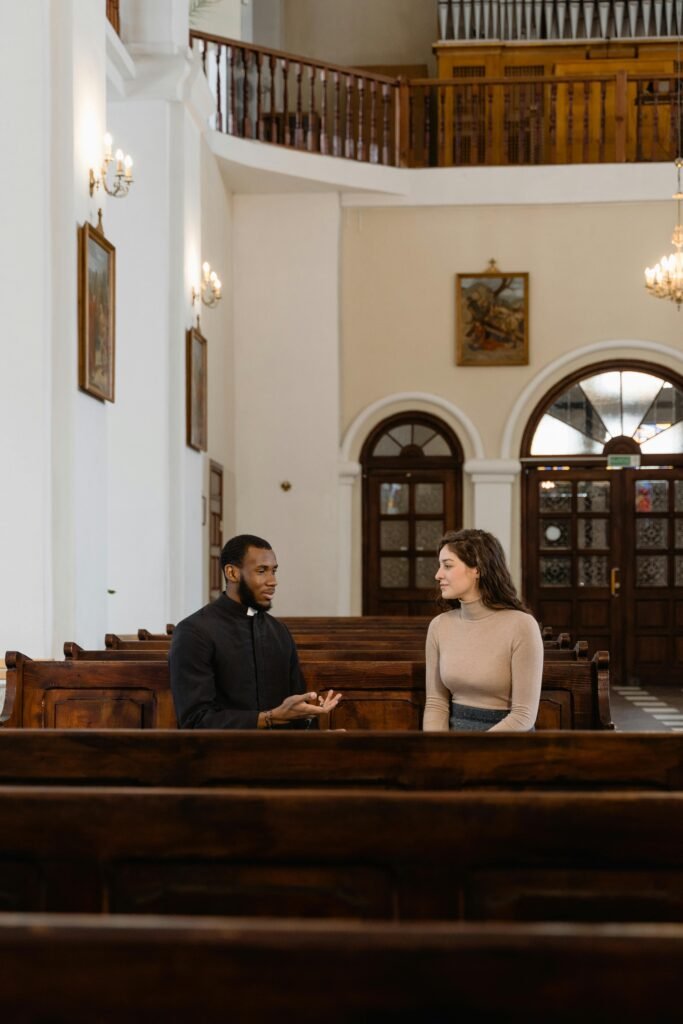
Reconciliation
Reconciliation, also called Confession or the Sacrament of Penance, is one of the seven sacraments Catholics believe were instituted by Jesus Christ himself.
The sacrament of Reconciliation is a sacrament in which the priest, as the agent of God, forgives sins committed after Baptism, when the sinner is heartily sorry for them, sincerely confesses them, and is willing to make satisfaction for them.
By his death on the Cross, Jesus Christ redeemed man from sin and from the consequences of his sin, especially from the eternal death that is sin’s due.
So it is not surprising that on the very day he rose from the dead, Jesus instituted the sacrament by which people’s sins could be forgiven, when Christ speaks to the apostles after his Resurrection.
JOHN 20:22-23
Receive the Holy Spirit.
For those whose sins you forgive, they are forgiven; for those whose sins you retain, they are retained.


The Sacrament of Reconciliation is celebrated:
St. Joseph’s and St. Elizabeth’s
Each Saturday immediately after 10:00am Mass, and between 17:30pm-18:15pm.
St. Edmund Campion
Each Saturday between 5:30pm-6.00pm and by appointment.
St. Thomas More
After daily mass and after 10.00am mass each Friday and by appointment.
Please contact the Priest if you wish to make an appointment at another time:
St. Joseph’s and St. Elizabeths – Fr Ephraim Odhiambo eodhiambo@portsmouthdiocese.org.uk
St. Edmund Campion – Fr Liam Cummins
lcummins@portsmouthdiocese.org.uk
St. Thomas More – Fr. Kevin Hughes
khughes@portsmouthdiocese.org.uk
In Confession
The priest will welcome you. Begin by making the Sign of the Cross.
A simple formula can get you going: “Forgive me, Father, for I have sinned. My last confession was ___ days/months/years ago and these are my sins.”
You then share with the Priest your brokenness and sinfulness.
The priest may offer you counsel and give you an appropriate penance to show that you are repentant.
The priest then invites you (the penitent) to make an Act of Contrition. There are no required words, although you need to include that you are sorry and that you will amend your life. A commonly used Act of Contrition is the following:
My God, I am sorry for my sins with all my heart. In choosing to do wrong and failing to good, I have sinned against You, whom I should love above all things. I firmly intend, with the help of Your grace, to sin no more and to avoid whatever leads me to sin. Our Savior, Jesus Christ, suffered and died for us. In His name, my God, have mercy.
The priest then prays the prayer of absolution (forgiveness):
God the Father of mercies, through the death and resurrection of His Son, has reconciled the world to Himself and sent the Holy Spirit among us for the forgiveness of sins. Through the ministry of the Church, may God give you pardon and peace. I absolve you from your sins, in the name of the Father, and of the Son and of the Holy Spirit.
You answer, “Amen.”
The priest may then say, “God has forgiven your sins. Go in peace.”
You respond, “Thanks be to God.”
You then leave and as soon as possible complete the penance the priest has assigned to you.
Confession is one part of the sacrament of Penance & Reconciliation; completing your penance is the other part.
Believe it or not, going to confession is the easy part. The hard part is actually amending our life so that we do not commit these sins again.
For this, we need God’s abundant grace through the Eucharist, prayer, fasting, and almsgiving.


All Sacraments Need Preparation
To prepare for the sacrament of Reconciliation you should first thoroughly examine your conscience, with an honest, humble, and thorough examination. This helps you to prepare for the sacrament. Writing your sins on a piece of paper before you go can help you during your confession.
Once you arrive at church, take a few minutes to pray, asking the Holy Spirit to help you make a good confession.
Sometimes there may be a long line that will give you ample time to pray and reflect. Other times there will be no line at all. Feel free to take your time to pray before going in. There’s no rush.
When it is your turn, enter the reconciliation room. You can either kneel behind a screen or sit in a chair facing the priest.
Many people are afraid or embarrassed to go to confession. Don’t let this sense of shame deter you. It is natural to feel that way but once you’ve done it a few times you will begin to feel more at ease and confident going in.
1 JOHN 1:9
“If we confess our sins, he is faithful and just to forgive us our sins and to cleanse us from all unrighteousness.”


Our Newsletters


